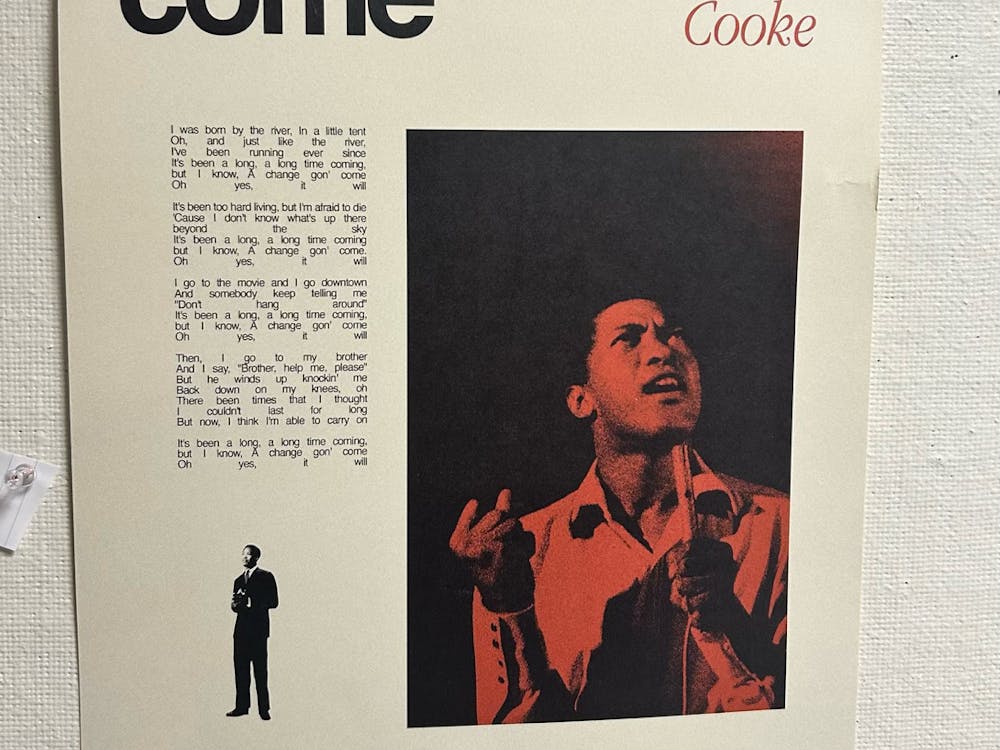As a rising junior, I wish I could say that I’ve overcome imposter syndrome and have somehow reached full confidence in my abilities, but of course, I still compare myself to others all the time.
As high-performing students at a high-performing school, many of us are prone to imposter syndrome: a psychological term describing feelings of inadequacy and uncertainty about whether we should be at the same positions as our colleagues. Imposter syndrome seems to be an inevitable symptom of attending a top university; the fallout of sequestering a bunch of type-A, go-getter young adults into a room with other type-A, go-getters.
We compare ourselves to the people around us, wondering if we’re really smart enough or hard-working enough to be here. We wonder if we will end up failing out of Organic Chemistry or Physics because we did not make the metaphorical cut. We question our efforts and doubt our own abilities, succumbing to fatalistic thoughts that, unfortunately, persist even after our first semesters.
I, myself, am prone to a particularly nasty line of thinking, where I constantly measure myself against an invisible standard of what I perceive to be ‘acceptable performance’.
Last spring, this tendency to self-measure led to a great deal of anxiety and stress after my search for a summer internship yielded little success. Instead of getting a fancy New York publishing stint, I accumulated a pristine collection of rejection emails. The English tutoring job that I eventually found has been fun, but it’s a far cry from the resume-building career-booster that I’m looking for.
I can provide a list of reasons why I didn’t get an internship: I began my search too late in the spring semester, I was only a sophomore while many companies look for juniors or seniors, I did not polish my cover letters and resume. Inevitably, though, I began to wonder if my list was just a collection of easy excuses that prevented me from accepting the real truth: I am worse than everyone else and destined to fail at everything I will do in my life.
Okay, I know that sounds extreme. I might be delving a bit too far into the realm of delusion, but I truly had that exact thought this summer. I’m sure I’m not the only one who lets their minds wander to extremes too.
When everyone around me is working at a research lab or clerking at a law firm while I’m tutoring kids for minimum wage, I can’t help but wonder if the reason I didn’t get an internship was because of some inherent flaw keeping me from meeting my goals. And if I don’t fix this inherent flaw, am I setting myself up for a life of misery and rejection?
Contemplating these extreme thoughts this past summer has allowed me to reflect on myself and my future goals. I have attempted to parse through the causes and effects of imposter syndrome, through observations of both my own and others’ behavior, in order to create a few mental strategies to address this issue.
At its core, imposter syndrome stems from feelings of low self-worth in relation to others. When we compare ourselves to others, or more specifically to the ideas we have of others based on the personas they show us, we inevitably feel we fall short.
These feelings of low self-worth lead us to doubt our own capabilities, often resulting in a negative feedback loop where our doubts lead to worse behavior and results that further perpetuate our doubts to repeat the cycle.
Our doubts are exacerbated by the uncertainty of the future. We are unsure about whether or not we’ll be successful at a job or class, so we either adopt a fatalistic perspective to lessen the potential for disappointment or we begin to shrink the spaces we have access to.
For instance, if we feel like we’re imposters in a certain competitive class, we might drop it from our schedule, narrowing our window of opportunities and preventing potential gain from the class. This narrowing of spaces is an example of a normal behavior gone wrong; it’s healthy to aim for appropriate goals and reasonable expectations, but if we constantly doubt ourselves, we’ll always aim lower than what we can actually achieve.
Having thought about the causes of imposter syndrome, I went about addressing its impact on myself by trying to understand the sources of my behavior and the boundaries dividing different areas of my life.
I began by considering the reason I work. When work is fueled by intrinsic motivations, rather than a need for approval or future security, the work is more likely to feel fulfilling even when the results don’t line up with external expectations. As a writer, I frequently submit short stories to literary magazines. When I compare my own track record for publication acceptances to the lengthy and distinguished portfolios of reputed writers around my age, it is easy for me to feel unhappy with my writing. However, focusing on finding joy in simply the creation of my stories has made writing much more enjoyable for myself.
Next, I tried to accept my explanations for what they are: explanations, not excuses. Explaining bad results can feel like a tricky game. How do we know when we’re going too far with our explanations and beginning to use them as excuses to resist internal change?
It’s helped me to seek objective opinions from people I trust to be honest with me. For me, those people are my family members and my close friends from my ministry. I trust that if I ask them to listen to my explanations for why I did poorly on something, they’ll tell me straight up if my explanations seem like excuses. If they agree with my explanations, I can feel validated and settle some doubts about myself.
The next mindset I attempted to adopt required more emotional work and is still an ongoing process. At its root, imposter syndrome is a problem of comparison that, in simplistic terms, could be solved by separating self-worth from other people. This is obviously easier said than done, but I believe recognizing my own tendencies to find validation in others is one step in the right direction.
As a religious person, a lot of my value in myself is rooted in my faith in a higher being. I’ve been able to find more security in my self-image by resting its foundation in an objective source of belief rather than the fluctuating, subjective whims of other people.
Others might find self-value by considering philosophical ideas of what it means to be human and have worth, in the simple acts of daily life and the joys of just being alive or in the work they create. What reasons can you find to love yourself outside of other people?
Finally, I tried to look at the big picture of my life. A lot of my issues with comparison come from a belief that I’m not doing enough — that I need more words on my resume, more publications to my name, better grades on my essays — and that if I fail to meet the standards I’ve created for myself, I’ll fail to meet my ultimate goals.
I think since many of us spend time with people of similar backgrounds and ambitions, we delude ourselves into believing there’s a singular way to do things. We set up our expected plan: graduate from college in four years, go to graduate school or medical school and then find a steady job, all by the age of 30. This adherence to a single path is fantastic if that happens to be the exact path set out for us, but almost 100 percent of the time, our strict and narrow plan will not come to fruition.
Moments of failure are inevitable. Setbacks aren’t just likely — they’re guaranteed. Instead of believing that a setback is indicative of our failure as a human being, we should accept the setback and use it to readjust our plan. If this means taking more time to finish something, that’s fine.
Our lives don’t need to look one way, and taking things slow will give us ample opportunity to invest in the people and activities that we love.





